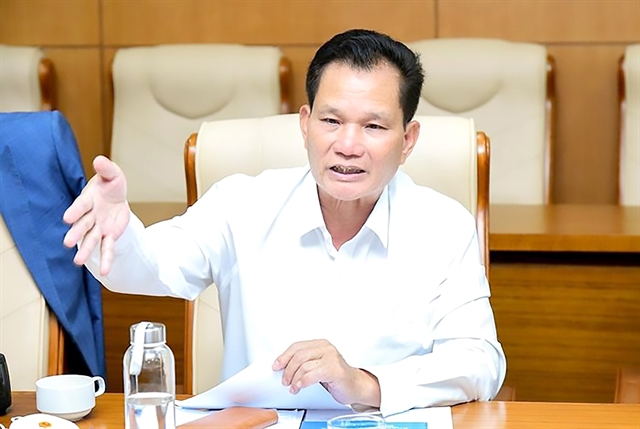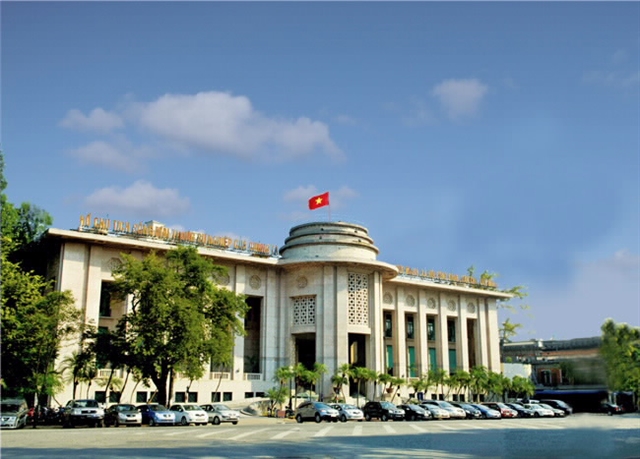 Opinion
Opinion

 |
| Bùi Sỹ Lợi, former deputy chairman of the National Assembly's Social Affairs Committee. Photo baoquocte.vn |
Bùi Sỹ Lợi, former deputy chairman of the National Assembly's Social Affairs Committee, speaks to The World and Vietnam Report about the need for salary reform.
Wages are always an issue that heats up the National Assembly debates. Could you share your viewpoint towards the need of salary reform?
Wages are the most urgent issue and always raise lively debate because the current wages are calculated no longer based on the principle of labour distribution but must be based on productivity, quality and work efficiency.
Wages must meet the minimum living standards of workers and their families (according to the provisions of the Labour Code). In the public sector, spending on salaries for officials and civil servants is spending on development investment.
Salaries must be reformed so they are truly an important motivation to encourage officials and civil servants to improve their capacity to perform public duties more effectively and reduce corruption.
Following the nature of civil servant salaries, with the development of the market economy, salaries must approach the value of market labour, and must aim for fairness and substance. It is necessary to establish a minimum wage rate for administrative civil servants equal to the labour and the salary in the market area.
Given their complex and important role, the administrative civil servant labour force must be ranked more important than labour in the production and business sector, ranking only behind the armed force.
The minimum wage adjustment of the labour relations area needs to comply with market principles through negotiations by the National Wage Council and the reformed salaries of administrative civil servants.
You used to say wage reform must ensure that workers have enough to live. Could you elaborate on that comment?
That's right. Wage reform on July 1, 2024 is the adjustment made at the right time because we have pushed back the reform deadlines at least twice since 2020.
Salary and social insurance policies should not be inconsistent with the economic scale and growth rate. This creates salary inequality in the public sector and the production and business sectors. We have taken a step forward to streamline apparatus, rearrange organisations and prepare resources.
Salary reform in current conditions is good news for civil servants and public employees, creating motivation for them at work, boosting labour productivity and retaining employees.
The Politburo ordered that the salary reform process must consider the characteristics of public service units to ensure that salaries are distributed based on capacity, contributions and job positions, and follow principles of labour distribution.
For that reason, wage reform aims to ensure that workers have enough to live on their wages.
Consideration must be given to regulating specific types of allowances for specific industries.
Wage reform also aims to retain workers or attract talented people with professional qualifications to the public sector and prevent officials, civil servants and public employees moving from the public to the private sector.
What challenges are we facing in wage reform?
There are lots of challenges in personnel not being streamlined. There are still many public service units that rely on State support and have not been able to transition to autonomy.
We need to accelerate wage reform. Wages in the public sector now remain very low.
I think that the salaries of cadres, civil servants and public employees are still not enough to meet their daily needs. It is difficult to have a team of professional, diligent and effective civil servants. Therefore, the immediate urgent task is to speed up wage reform policy to ensure that officials, civil servants and public employees can afford increasing prices. We also need to ensure adequate salaries on par with the efforts made by the civil servants and public employees.
Can you suggest specific solutions?
Wages must reflect the true value of labour which is demonstrated by market prices. Therefore, the State needs to focus on resources, considering wage reform as investment for development. In the longer term in 2024, we need to focus on three issues.
Firstly, it is necessary to continue to rearrange the organisation, apparatus and streamline personnel, following the Politburo’s resolutions.
We must clearly realise that streamlining payroll is a prerequisite for wage policy reform. Reasonable re-division of labour will contribute to increasing labour productivity, creating social growth for national development.
Second, it is necessary to transform public service units towards autonomy and self-responsibility with careful and selective steps.
Third, we must create resources for salary reform policy. To reform wages, there must be resources from streamlining payrolls, cutting expenses, preventing corruption and negativity, thrift practice, combating waste, and from increasing local and central revenue sources.
The revenue increases beyond the target must be saved to implement salary reform. At the same time, we must reduce growth investment spending to invest in wage reform, because again, investing in wage reform is investing in development.
As you just mentioned ‘investing in wages is investing in development’, so what is your expectation of wage reform in the near future?
People are the focus, the goal and the driving force of development. To achieve the goal and realise this ideology, implementing salary reform and ensuring material life for workers, officials, civil servants and public employees is extremely important.
We need to carefully recognise and evaluate the situation that some civil servants from the public sector move to the private sector. It is a brain drain from the public sector to the private sector.
I hope that the salary policy reform will ensure a living wage for officials and civil servants on par with their job positions and titles.
The salary issue depends on many factors, especially socio-economic conditions, social labour productivity, and the level of economic growth. The average wage growth rate must be slower than the labour productivity growth rate. Therefore, wage reform can only be achieved when labour productivity increases and the economy develops.
More importantly, thanks to the wage policy reform, the total amount of money in circulation will increase, leading to an improvement in the cost of living index. Therefore, if the Government does not have solutions to control inflation and stabilise market prices, reforming wages or increasing income for workers will no longer be meaningful.
Salary policy reform must be synchronised with administrative procedure reform as well as apparatus streamline. The most important thing is to apply information technology, digital technology, and digital economy to minimise manual labour while still increasing labour productivity.
In the fourth industrial revolution, human resources are valuable. We must strive to have a progressive society where people work less and enjoy more. VNS




